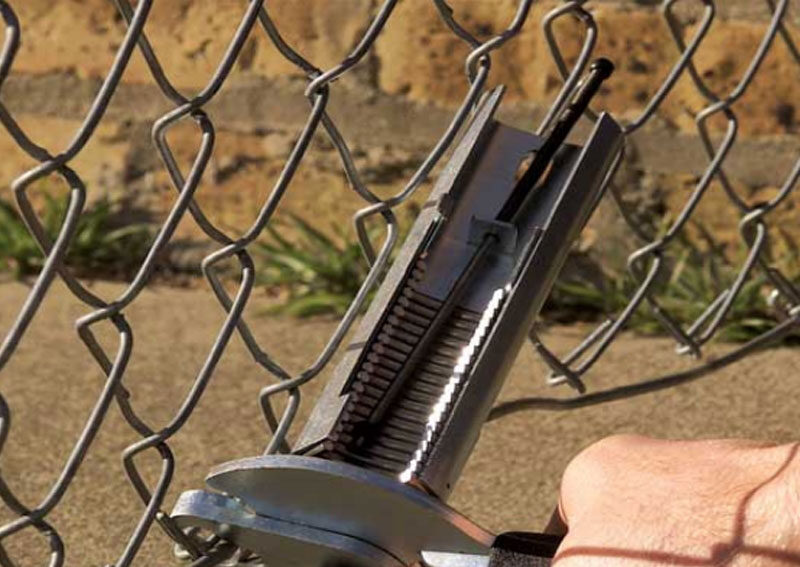
Selecting Hog Ring Pliers for Fencing
Installing chain link fencing requires a lot of hog rings. If you’re not using the right tool, it will be challenging and labor-intensive, potentially leading to hand and wrist injuries.
For hog ring installations, the most important thing to know is that you’ll need specialty hog ring pliers. You should never use standard pliers with hog rings because hog rings always have a circular cross-section; if you try to grip a hog ring across its ends with regular pliers, it’s almost guaranteed to fly out sideways. Hog ring pliers have indentations in the jaws that hold the ring in place while you close it. Better quality pliers have a more clearly defined indentation that holds the ring more securely.
The challenge with most tools is that there are several different options on the market. In this article, we’ll cover how to select the right pliers for your fencing application.
Hog Ring Compatibility
Hog rings are produced in a range of sizes, in one of two shapes, and from several gauges of wire. If the hog ring pliers you purchase aren’t matched to the type of rings you’re using, you’ll run into issues during installation.
In terms of shapes, you have two options: C and D rings. C-shaped hog rings close in a circle, while D-shaped rings close in a triangle shape with an overlap along one side.
Chain link fencing is usually secured with either 11- or 9-gauge rings. Being thicker, 9-gauge rings need more closing force.
Bottom line: Choose pliers specifically designed for the type of ring you plan to use. It’s safer, and it makes the job easier.
Length
Longer handles mean more leverage on the hog ring as you close it, which is important for reducing the amount of hand effort needed, especially when using heavier-gauge hog rings. Longer-handled pliers may cost a little more, but you’ll quickly feel the benefit!
Grip
While looking at handle length, consider whether there’s any cushioning. Cheaper pliers generally don’t feature cushioning, and again, that’s something you’re going to notice after a day spent closing hog rings.
For anything other than the smallest fencing job, invest in hog ring pliers with cushioned or rubberized handles.
Type
As you start looking at hog ring pliers, you’ll see the least expensive are hand-loaded, while the next step up adds a magazine, which automatically loads a new hog ring between the jaws after a ring has been released. A magazine-type model means you don’t have to manually place the next ring, which can be a time-saver during large projects. The downside is that they’re a little more expensive. We would only recommend magazine-loaded models if you plan on installing chain link fencing frequently, but not for small or one-off projects.
Find the Right Hog Ring Pliers Today
King Steel Fasteners is an industry-leading supplier of hog rings, Kodi Klips, staples, and specialty tools. You can visit our website to explore our current hog ring plier models. If you need help selecting the right model, don’t hesitate to contact one of our product specialists.
